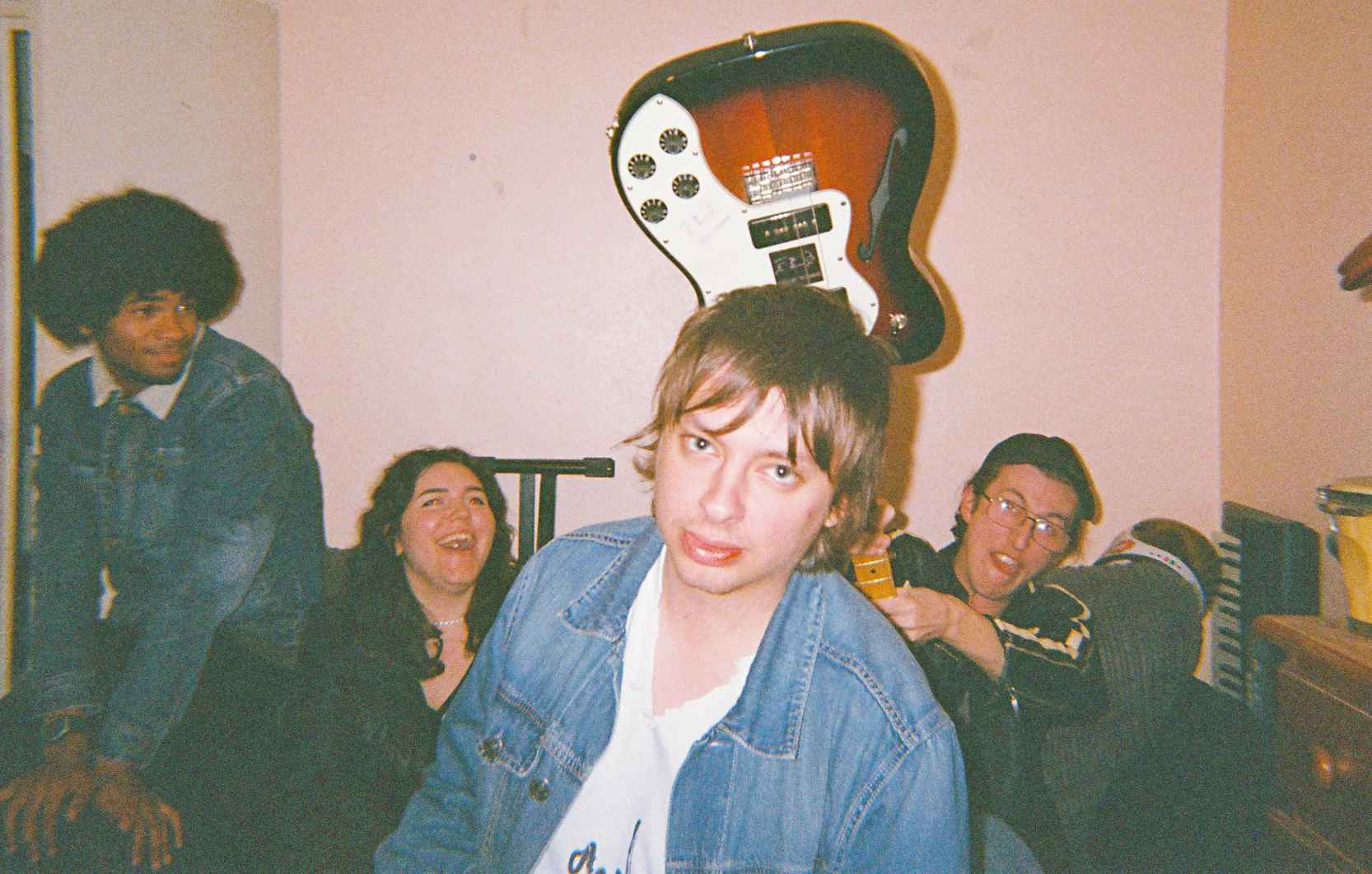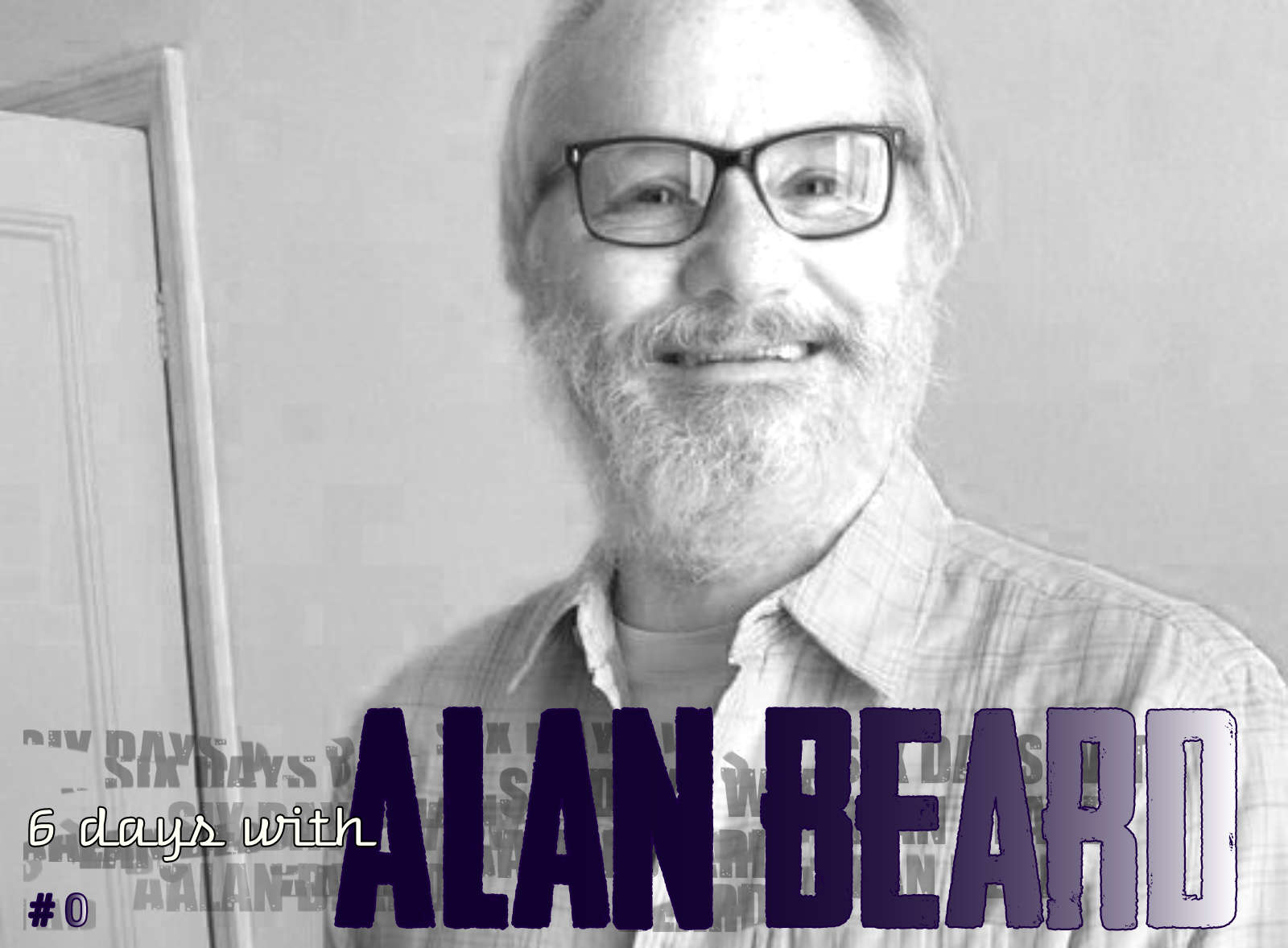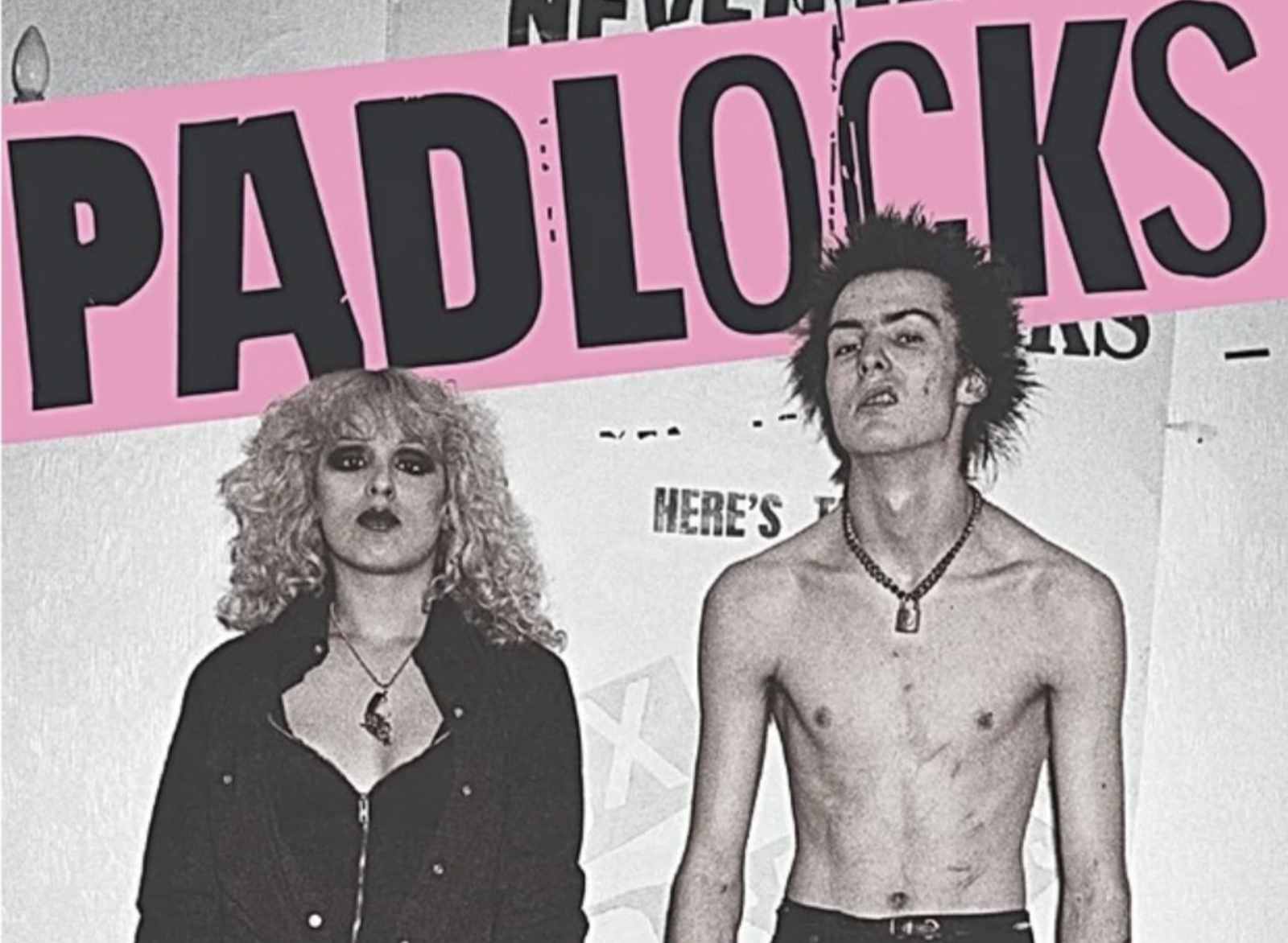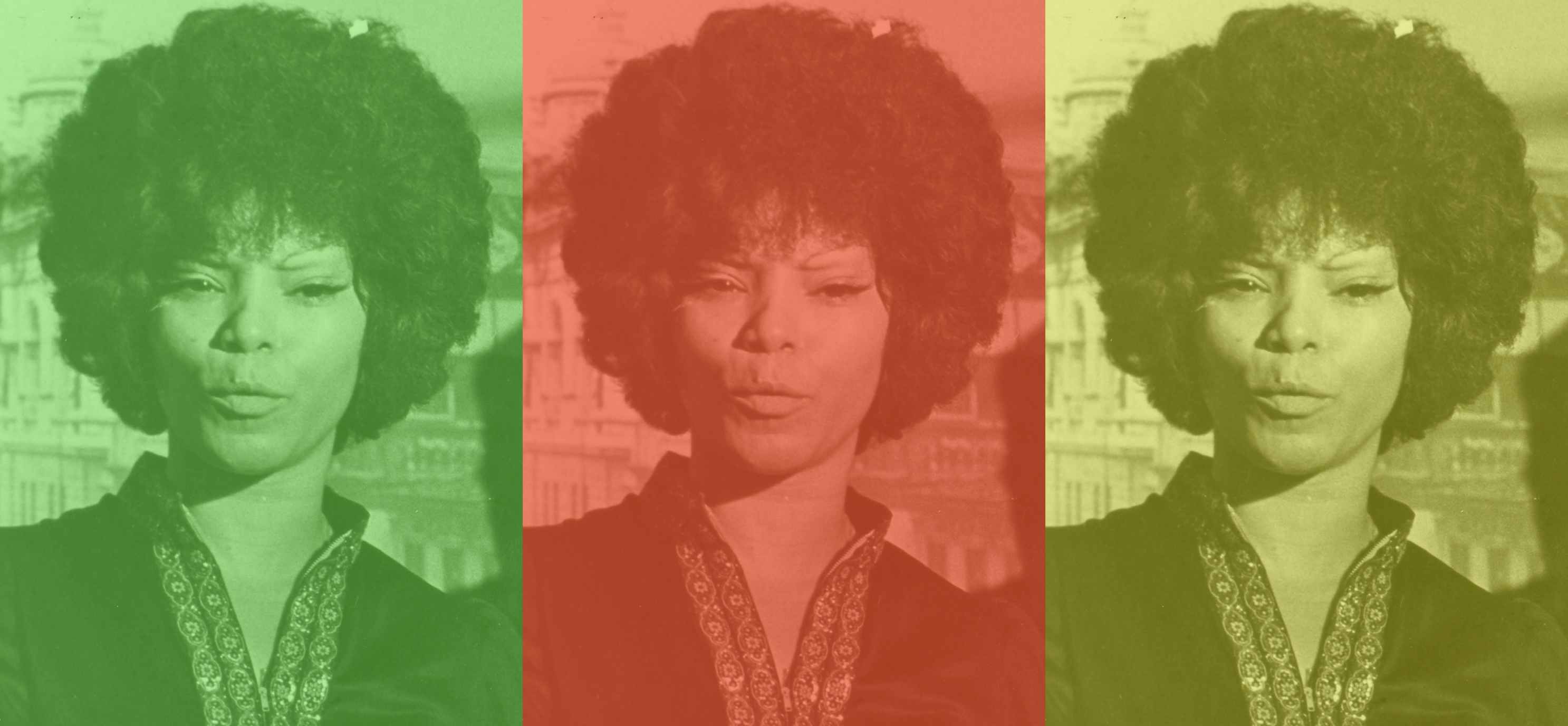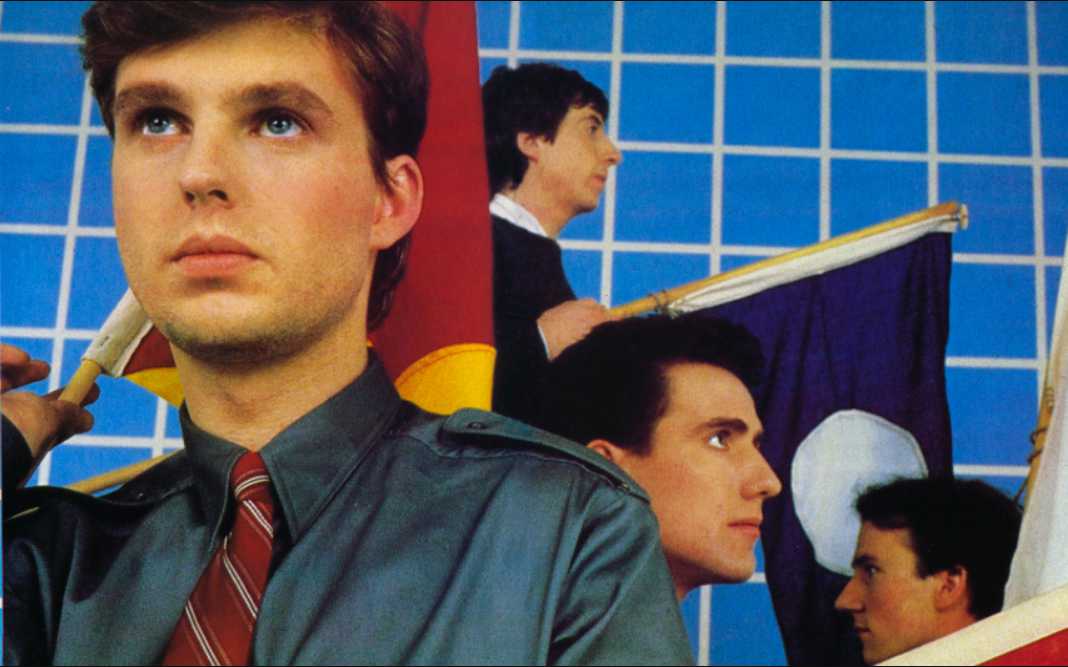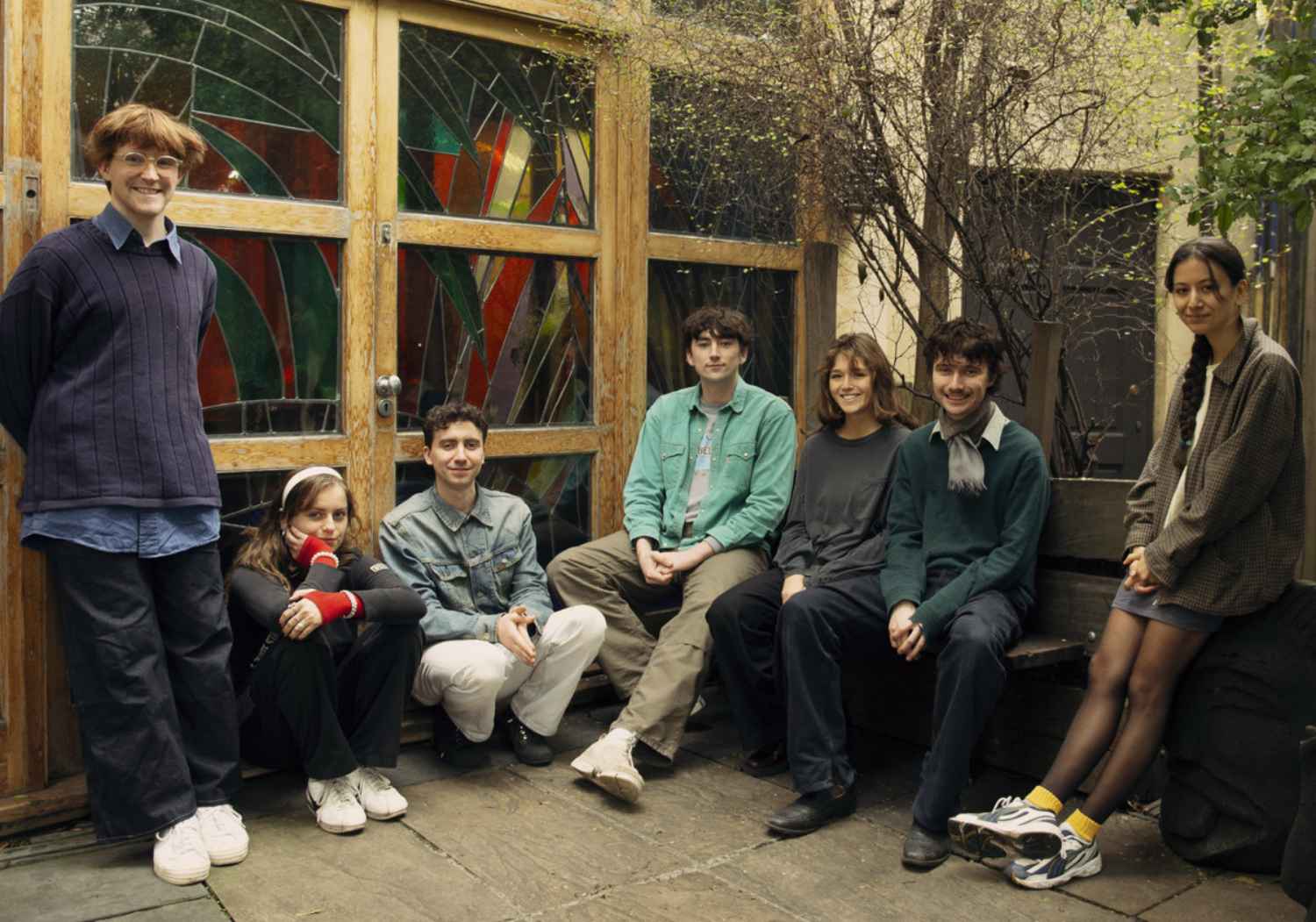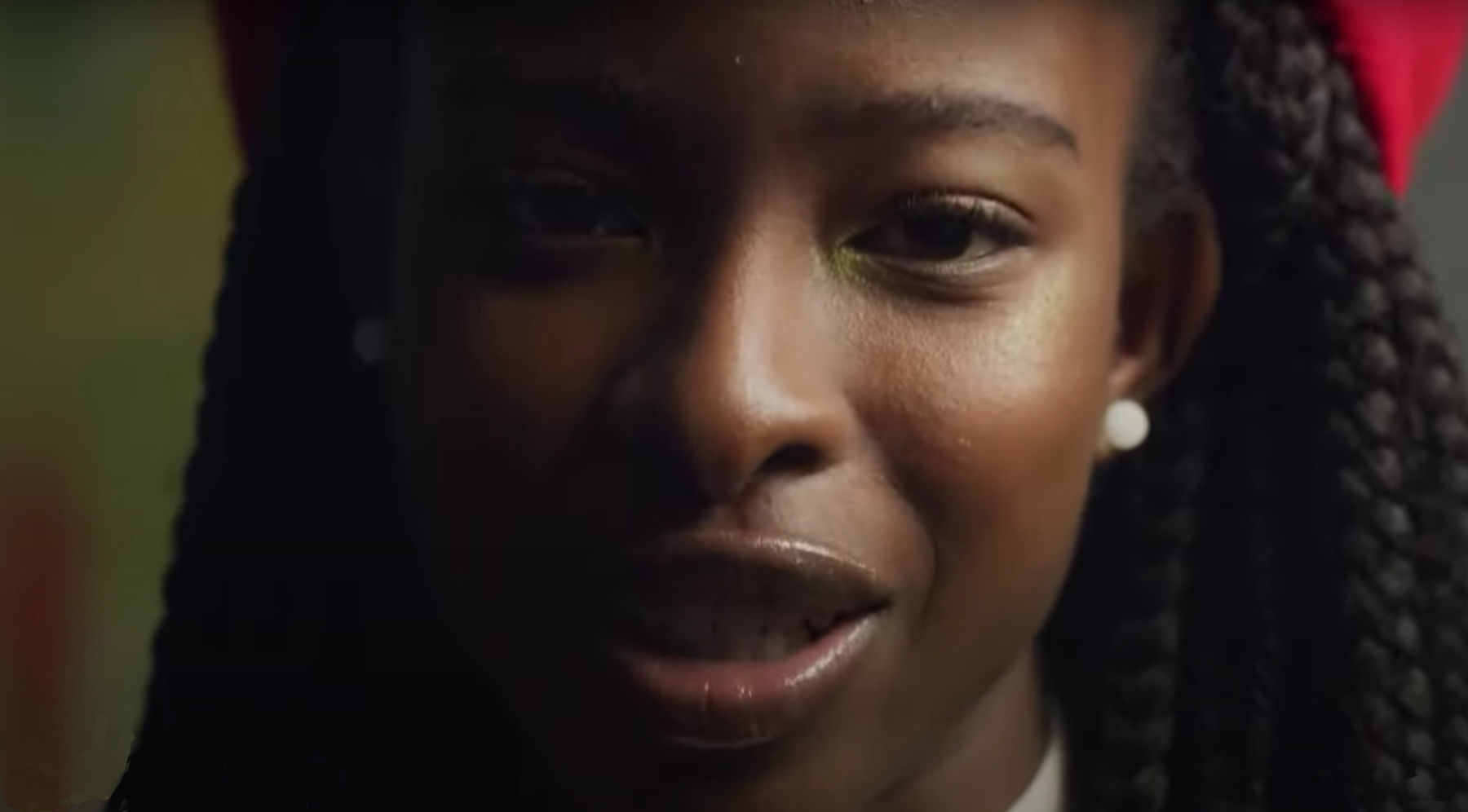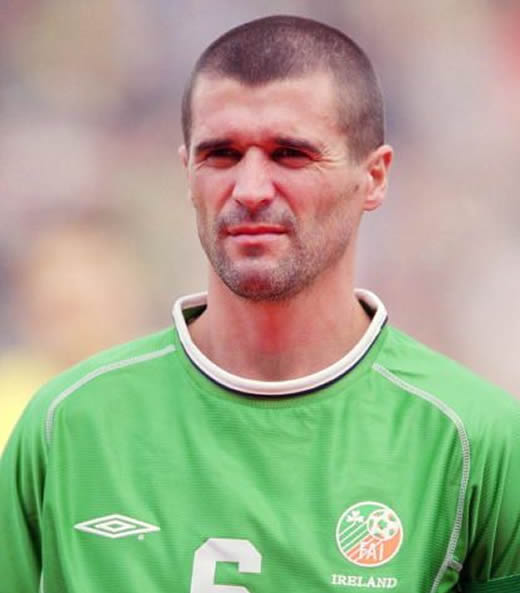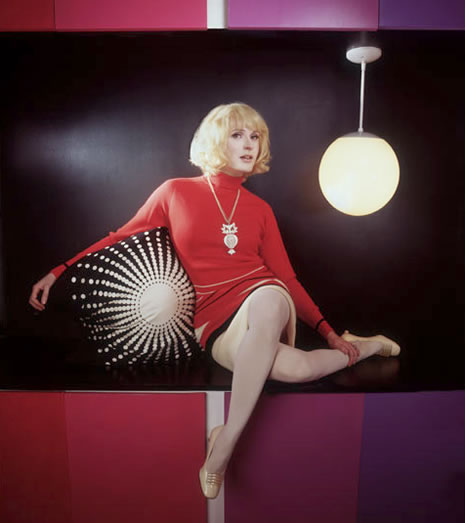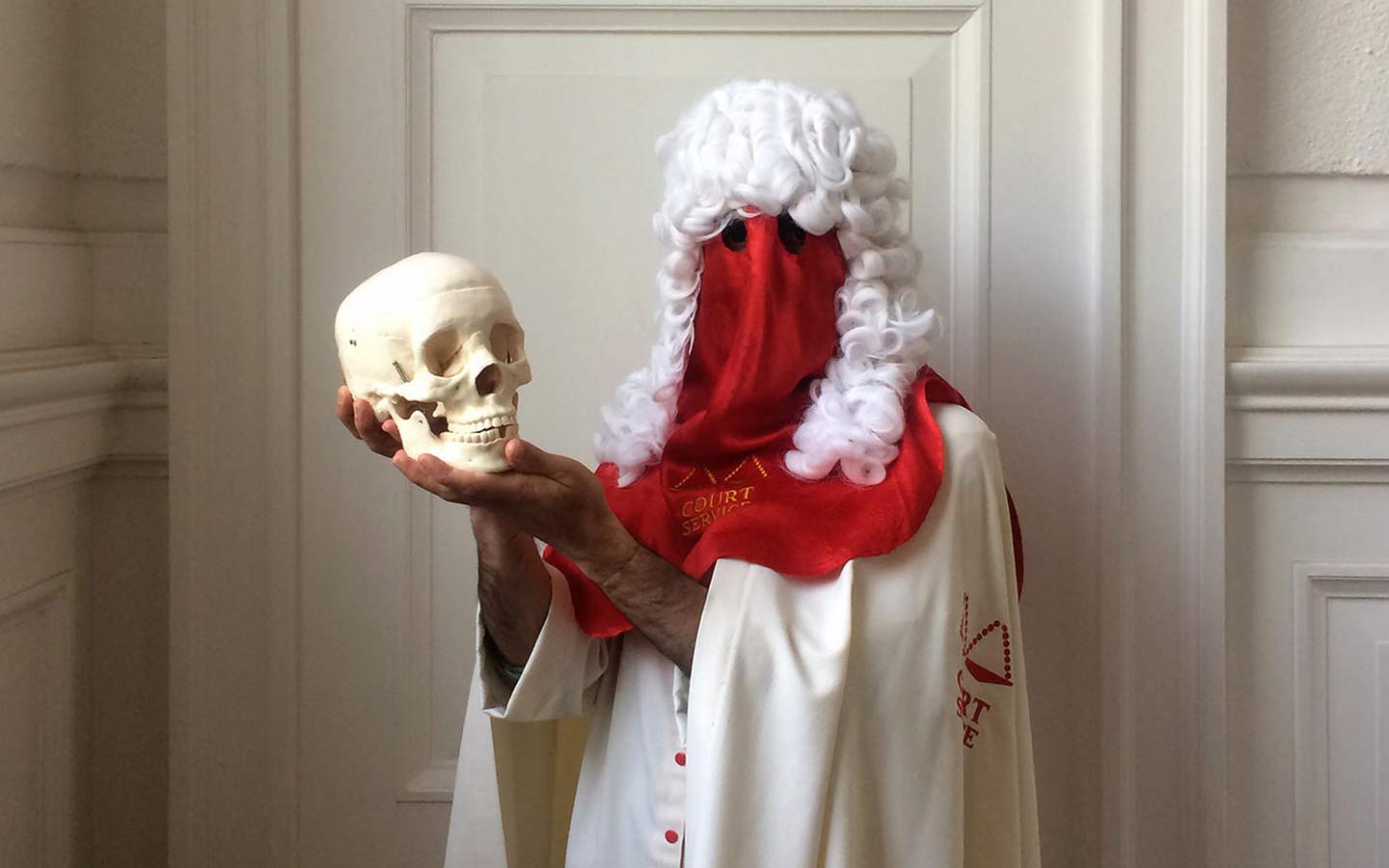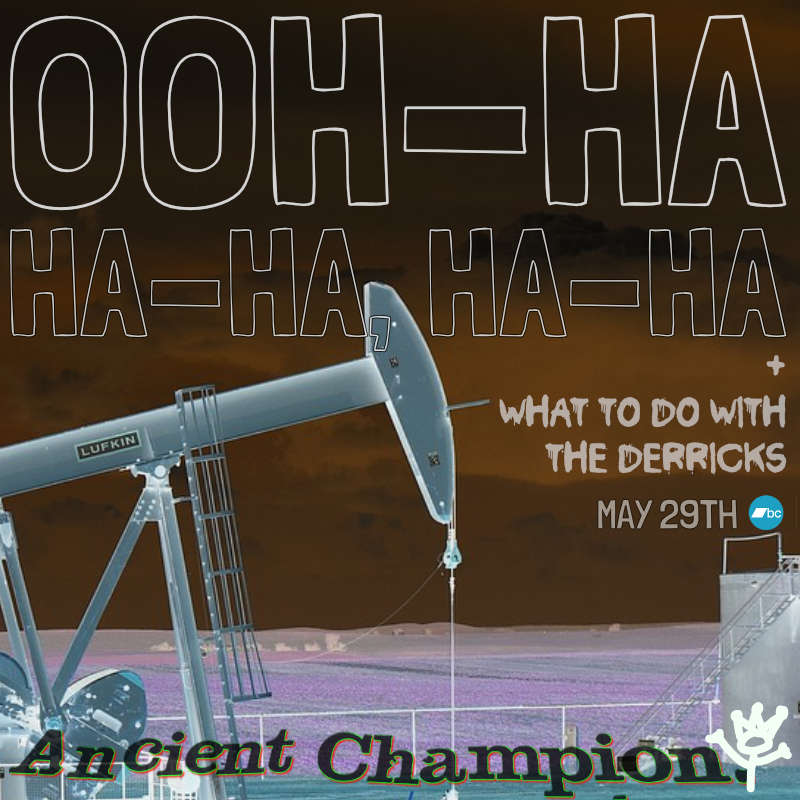I got to know Lee Christian and his music in March '23. I regularly listen through the new arrivals on Bandcamp to find artists for my blog and so stumbled onto Pandemoria's Box. What I liked about the music was that while loud, intensive, and demanding, it was still very personal and emotional.
Lee then wrote a more extended essay about his new single "Black Man" - the blog intends to have artists writing about their music, adding context to it.
We stayed in contact, and in the fall, Lee asked if I would interview him to close his Pandemoria's Box, which we did by e-mail in December.
URS LERCH: You describe your album, Pandemoria's Box, as a concept album. Before we go deeper into that, I wonder if it was from the beginning part of the concept to include two remix albums?
LEE CHRISTIAN: Good question. I can't say the concept included the instrumental/acapella album at first because the concept is very much in the lyrics of the album. While I did make an effort to convey the mood and tone of the lyrics in each song, I wouldn't go so far as to say the music would do a full enough job of conveying the whole lyrical concept, Peter And The Wolf style.
I had started including instrumentals as B-sides and bonus tracks recently. I had found that I enjoyed listening to them more sometimes because I can tire of the sound of my voice (contrary to popular opinion). So it wasn't a stretch to include them since I would often mix a song to my satisfaction as an instrumental and print it for reference before attacking the vocal (and in some cases spent a long time working on vocals alone, so printed acapellas too). It's a very dense album, both musically and vocally, so often, breaks and reference mixes were necessary after hours and hours of mixing. Sometimes, the final mix with the vocals in it would lose a few of the parts in the instrumental mix, too, for the sake of not cluttering the song.
The alternative versions of the companion album were partly due to taking strange detours or alternative ways of mixing songs to get my head around the component parts or focus on parts that weren't as prominent in the final mix. The other reason is I was a bit sick of the versions I had spent mixing for ages and wanted to put a new spin on some of them for my own ears!
I would say the instrumental album was always going to happen because the album itself is so long that it would be too much to include them on the back of it. The alternative versions album was born somewhere near the end of the mixing process - but obviously, both of those came after the songs for the concept album had already been written and/or selected.
UL: Interesting. I haven't been aware that being a solo recording artist has this kind of influence on the output. Thus, is it your conscious decision to record as a solo artist because you like to work that way? Or is it much more a lack of finding a suitable band, and the work process is simply a result of that?
LC: The first way I ever made music was by recording things using multiple stereos, walkmans, and sound sources as a kid. Then I got a 4 track around the time I was in my first band, so making my own songs on my own has always been a part of my process, and anyone who knows me would attest, though I didn't do much with them before unless they ended up getting adapted by bands I was in. Near the turn of the century, I got paid £100 by an online record label called Peoplesound for an album of 4 track recordings, which actually was released under the name Smilex just before I turned that entity into the rock band most people (if they know me) know me from/for.
I stopped releasing my recordings for a while because I started mostly writing for the band - then, in about 2010, I had many recordings that were obviously not for the band for one reason or another (they were electronic, the band didn't like them, they were an experiment with no intention of being a release, etc etc) so my 'solo' releases started - but despite my voluminous output since then, I do put whole albums of songs aside or in a vault for later on.
I have two live bands - Smilex, who, despite a reunion show this summer (https://www.youtube.com/watch?v=IpfIOXynKmU), are predominantly on hiatus.
The other is The Prohibition Smokers Club - a rotating collective of Oxford players I would play festivals and more funky bluesy soul plus some dancier stuff with too that started playing more of my solo stuff in the set. It's pretty costly to do a band to support a solo artist, and it's not always easy to find the right players so the demand/paying gigs can determine a lot. I have been a bit lazy post-pandemic and want to do more live stuff and collaborate with other players, even a band, in the new year. I wouldn't want it to suck, as I have a sterling live reputation to live up to.
UL: Back to Pandemoria's Box, has it been considered a concept album from the beginning, or did you recognize that there is a theme after a few songs?
LC: Well, I was going to do a spin on diaries of each year: ZoZo, ZoZ1, ZoZZ, etc., and to kick the decade off was a concept about a demon spirit ZoZo, which was kind of an 'as above so below' almost conspiratorial type story with the year 2020 being the year ZoZo rose to dominance. The song 2020 was initially for that album but was long past its sell-by date by the time Pandemoria's Box came out! I had Red Button Day, which features the "zozozozozo" lyrics, almost like a summoning incantation, which eventually also became an acronym for "zero option zealot order" during the Pandemic (the song itself was inspired by someone saying the chorus lyric "everybody's had one of those red button days' to me and me thinking that's amazingly risky with the temperament who we had in charge of said button at the time!), The Year of the Swine (about the awful treatment of people taking part in recent peaceful protests in Hong Kong and the authority's disinterest in it) and NO1LIKESTHEOTHER1 (division between all types of people was already setting in before the Pandemic with Brexit and more!) in the works already before the Pandemic hit for sure.
After the Pandemic hit, I had a lot going on creatively. I was busy in terms of trying to make a living, so I stopped work on the album, which I had planned to be yearly installments, and kept writing, knowing this was a time I'd want to document and shut the door on after. Another American Psycho and its AA side, No Real Me, were both written during the Pandemic after watching American Psycho again and thinking a sizeable chunk of the population had become worryingly close to Patrick Bateman - that film had come out in the '90s and is set in the '80s - but those songs weren't necessarily part of the concept/tracklist immediately because of the association with the film.
I feel like U Work 4 U$ was pretty much a reaction to footage of cops mowing down protestors at protests like the BLM ones in the summer of 2020. Pandemic Party Time was really just a big party jam to make light of a bad situation on NYE 2020 when everyone was locked up. The songs Pandemoria, The Social Distance, Jabs, Scary People All Across The Land, and Own Opinion all carry topics directly inspired by and tied in with the Pandemic and people's reactions to it.
Some of the other songs started to take on broader meanings too, reinstating or confirming their place on the tracklisting: like Darkest Day Of The Year, which had been a collaboration single with Tash Caesar already quite a while before the album came out but fitted the concept, was made and released during the Pandemic and was always intended to be on the album from the moment COVID hit.
Others that might have been in the running before the Pandemic were quickly out of the picture (so much so I can only recall two or three other songs that might have been considered out of a starting list of anything between 15 and 20 songs).
UL: I've read the American Psycho book and have to say, while it has its fascination, to me, it was hard to bear. Do you strive for a similar, albeit less unpleasant, reaction to your music?
LC: I haven’t read the book I am ashamed to say. But I can imagine having read ‘Kill Your Friends’. I definitely don’t want to play it safe and I want to say something about the world I/we live in and often in a subversive way.
I don’t mind testing people's thresholds for the right song/performance, etc, but really, each song determines what I do with it, and I try my best to get out of the way of that in terms of having constructs that might narrow or alter the song from its original idea/concept. I used to be very much that way with Smilex and when I was in that band, having specific ideas of what was a Smilex thing or way of doing things.
Nowadays I’d be just as happy making ‘Frankie and Johnny’ (Pacino and Pfeiffer's understated romance) as ‘Starship Troopers’ (Verhoeven gore sci-fi satire) these days, whatever the song needs to be, I want to get to the point. I’m just a vessel for the music and execute the inspiration effectively, however, it may come to me. But when I’m trying to be provocative, I don’t shy away, and I don’t mind making music that is difficult or experimental or challenging.
UL: Earlier, you mentioned that you have a live reputation. Unfortunately, I never had the pleasure of seeing you live. I guess you don't strive to reproduce your studio recordings but to create an experience of its own.
LC: My band Smilex was a very different beast to my solo stuff - we are a classic four-piece singer/guitarist/bassist/drummer type thing. So first, our records often tried to capture the energy of the live sets by which people measured us mostly, while obviously having those production touches that make it a record. And second, it’s an easier sound to nail live because the record and live are just two sides of the same coin. And they are great, so if they played it on the record, they kill it live. I ride the top of it and try to keep the balance between a well-performed show and an unexpected disturbance of some kind. It’s really important to the band that we deliver but we understand that’s not always about the meticulous reproduction of our records.
My solo music is never made with the idea of ever being played live, so there’s a lot of difference between the recording and how the Prohibition Smokers Club would do it live. Because my records are all done entirely by me, I then have great players who specialize in their instruments, so I can get a whole new perspective on the song that is purposely rebuilt for the live experience, or even more specifically, the live festival experience. I usually have a few other singers helping me live in the PSC because my solo records a lot more vocals/harmonies, and I can be looser with it (than in Smilex) and not create gaps.
That said, yes, for both bands the live experience has to be approached as an organic living, breathing thing because the energy is all different, and every gig is a different energy, space, day, time, and audience, so I have to make it as unique and personal as I can for that particular audience and memorable as a result. Certain routines and ‘bits’ can be part of your show, but what makes it more special for me are the things that feel spontaneous and random and could only have happened under those circumstances at that specific gig. I get why certain artists have set shows that don’t change much and have done shows like that but whatever ‘just for this moment’ factor I can introduce to my performance, I do…
UL: To circle back to the beginning: What are your plans for the future? Will there be another return of ZoZo, or do you have something completely different in your quiver?
LC: Oh, I think that's the end of that cycle of songs. I have about 200 unreleased songs from full-blown to sketch ideas - I'm trying to group them thematically rather than genre-specific. I feel like I'm close to finishing a new album soon - I just need some focused time for final mixes and a couple of lead vocal sessions.
There are also plans for releases by Smilex and The PSC.
I know I have a new single Fake Fyre coming out in springtime which I'm excited about as it's produced by my friend and labelmate The Filthy Honey (which means I didn't have to agonise over the final mix!). I might drop some new stuff before that, though; I was thinking of testing stuff via my mailing list and other alternatives to Spotify as I get frustrated with it as a medium.
I want to get out and play live again, so hopefully, that too, and I will continue with the label Quickfix Recordings and my show, The Fix, on Totally Wired Radio, plus their pursuits like my comic company, Theodicy Comics, and film and media via Aversion Films. I also mix, master, produce, and remix for other artists so I'm sure I will be kept busy - it's a struggle fitting it all in tbh!
Now that releasing music doesn't earn enough to be a full-time job, It slips down the priority list, which is heartbreaking for me, really. My socials, website (soon to be updated) and mailing list will keep anyone abreast of any new developments - I appreciate anyone's interest, and thanks for taking the time to do the interview. I hope you and your readers have a great 2024!
Essential.
Lee Christian on Bandcamp here→







